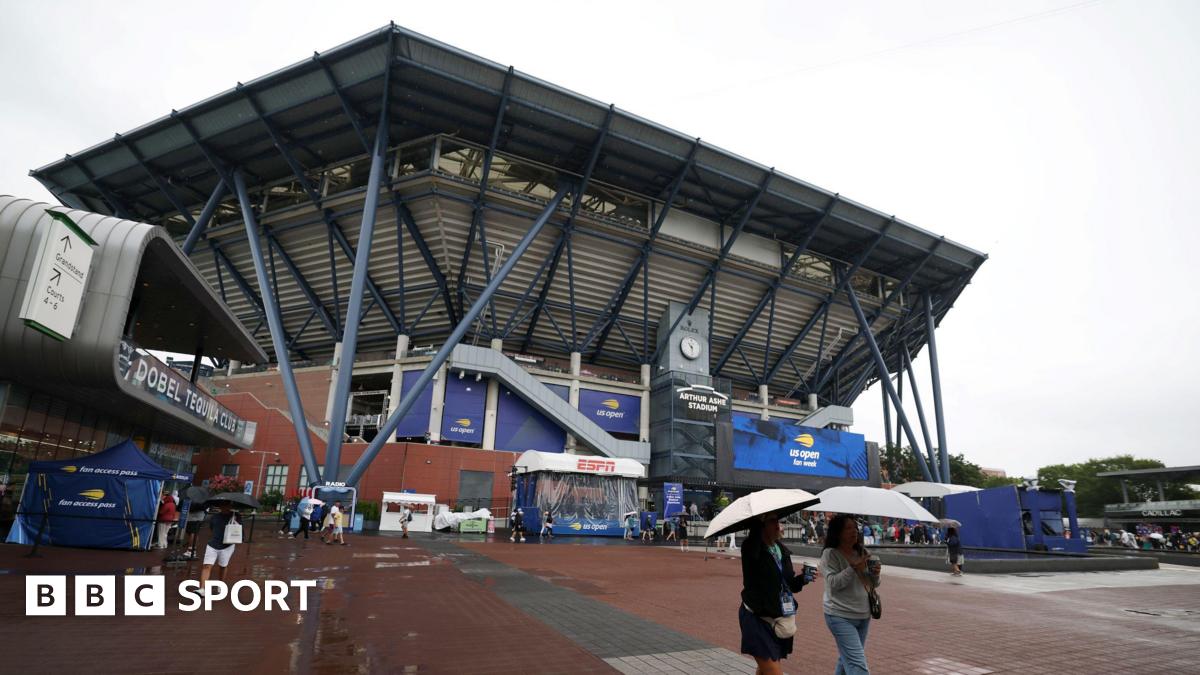What Is Online Order Fulfillment and Why It Matters?

Online order fulfillment involves the entire process that occurs after a customer places an order on an eCommerce site. It includes managing inventory, picking and packing items, and finally shipping them to the customer. This operation is vital as it directly affects delivery speed and product quality, which can make or break customer satisfaction. Comprehending how fulfillment works is key to enhancing your business’s reputation and driving repeat purchases. So, what are the fundamental steps and strategies for effective fulfillment?
Key Takeaways

- Online order fulfillment involves receiving, processing, and delivering orders from eCommerce platforms to ensure customer satisfaction and timely delivery.
- Effective fulfillment enhances brand reputation, with 88% of consumers likely to return to brands that deliver orders swiftly.
- Key steps in the process include inventory management, order processing, picking, packing, and shipping, all requiring coordination and real-time tracking.
- Common challenges include managing inventory across locations, high return rates, and rising shipping costs, which can impact customer loyalty.
- Outsourcing fulfillment to third-party logistics providers can reduce costs and improve operational efficiency, enhancing overall customer satisfaction.
What Is Online Order Fulfillment?

Online order fulfillment is the vital process that takes place after a customer places an order through an eCommerce platform. This all-encompassing system involves receiving, processing, and delivering orders, including key steps like inventory management, picking, packing, and shipping.
The goal of online order fulfillment is to guarantee timely delivery of products in good condition, significant for customer satisfaction. Effective fulfillment work requires real-time inventory tracking and coordination among departments like sales, warehousing, and shipping.
Various fulfillment methods exist, including self-fulfillment, third-party logistics (3PL), dropshipping, and hybrid models, each designed to meet specific business needs. Grasping the intricacies of ecommerce order shipping helps businesses optimize their processes and improve customer experiences.
Importance of Online Order Fulfillment

Online order fulfillment plays a crucial role in enhancing your brand’s reputation and driving repeat business.
When customers receive their orders on time and in good condition, they’re more likely to share positive experiences, which can attract new customers.
A well-executed fulfillment process not just satisfies current buyers but additionally cultivates loyalty, making it an indispensable component of your overall business strategy.
Enhances Brand Reputation
A staggering 79% of consumers will steer clear of a brand after a poor order fulfillment experience, making effective fulfillment essential for maintaining a positive brand reputation. When you guarantee timely delivery and accurate order processing, you build trust with your customers. Transparent tracking and communication throughout the fulfillment process reinforce a positive brand image. A well-structured fulfillment strategy can set you apart in a competitive market and contribute to long-term success by nurturing customer loyalty.
| Factor | Impact on Brand Reputation | Example |
|---|---|---|
| Timely Delivery | Builds trust | Meeting customer expectations |
| Accurate Order Processing | Reduces errors and damage | Fewer returns and complaints |
| Transparent Tracking | Improves customer confidence | Real-time updates |
| Effective Communication | Boosts customer satisfaction | Quick responses to inquiries |
| Well-Structured Strategy | Differentiates from competitors | Positive word-of-mouth |
Drives Repeat Business
Effective online order fulfillment doesn’t merely improve brand reputation; it directly drives repeat business. When you guarantee timely and accurate deliveries, you build trust with your customers.
In fact, 88% of consumers are likely to return to a brand that fulfills orders swiftly. A seamless process, including hassle-free returns, is essential as 67% of shoppers consider it a key factor in their purchasing decisions.
By implementing effective order fulfillment strategies, you can boost customer retention rates by up to 30%, greatly enhancing your long-term profitability. The process of Amazon exemplifies this, showcasing how efficient online fulfillment jobs contribute to customer satisfaction and loyalty.
In the end, meeting expectations not only encourages repeat purchases but likewise generates positive word-of-mouth referrals.
The Online Order Fulfillment Process

The online order fulfillment process starts with receiving inventory and storing it efficiently for easy access.
When you place an order, the fulfillment team quickly picks, packs, and labels your items, using automated systems to streamline this process.
After packing, your order is handed over to shipping carriers, who guarantee timely delivery as they provide tracking information to keep you updated on its status.
Order Processing Steps
In the online order fulfillment process, several critical steps guarantee that customers receive their purchases efficiently and accurately.
First, inventory arrives from suppliers, where it’s counted, inspected for quality, and logged into a system before being stored in designated areas for easy access.
Next, during order processing, incoming orders sync with inventory management software to create pick lists that streamline item selection.
In the picking and packing phase, items are carefully selected to ascertain accuracy and packed securely to prevent damage during transit.
Finally, once packed, orders are handed over to shipping carriers, and tracking information is provided to customers, enhancing transparency and satisfaction throughout the delivery process, assuring a seamless experience from order placement to delivery.
Shipping and Returns
Shipping and returns form a crucial component of the online order fulfillment process, directly influencing customer satisfaction and operational efficiency.
To guarantee a smooth experience, consider the following key aspects:
- Efficient packing minimizes dimensional weight, lowering shipping costs.
- Provide transparent shipping methods that include real-time tracking.
- Streamline returns processing with clear return labels and instructions.
- Leverage data-driven insights to recognize patterns in customer behavior.
- Implement strategies that improve future fulfillment during reducing return costs.
Key Steps in the Order Fulfillment Lifecycle

Amidst managing the order fulfillment lifecycle, grasping its key steps is vital for achieving efficient operations. The lifecycle includes five primary steps: sourcing, inventory management, order processing, quality control, and shipping.
It starts with receiving inventory, where you count and inspect goods, logging them accurately with SKUs or bar codes. Next, order processing automates tasks through order management systems, generating pick lists and allocating stock.
During picking and packing, accuracy is paramount, as you select items based on packing slips to minimize errors. Finally, shipping involves handing orders to carriers and providing tracking information to customers, enhancing transparency and accountability throughout the delivery process.
Comprehending these steps can greatly improve customer satisfaction and operational efficiency.
Strategies for Improving Order Fulfillment

To improve order fulfillment, businesses must adopt a variety of effective strategies that streamline operations and boost efficiency. Here are some key approaches to evaluate:
- Optimize inventory management by localizing stock near customers to reduce shipping times and costs.
- Implement order management software to improve tracking capabilities and streamline communication between sales and fulfillment teams.
- Automate processes like order routing and inventory picking using technology such as barcode scanners to minimize errors.
- Regularly analyze fulfillment metrics, such as order accuracy and fulfillment rates, to identify areas for improvement.
- Establish strong relationships with shipping carriers and assess their performance regularly to improve delivery speed and reliability.
Common Challenges in Order Fulfillment

During managing order fulfillment, businesses often face a range of challenges that can impede efficiency and customer satisfaction. One major issue is managing inventory across multiple locations, which can lead to inaccuracies and stockouts if not coordinated effectively.
High return rates, particularly in e-commerce, can reach 30%, requiring efficient returns processing to keep customers happy. Furthermore, meeting customer expectations for fast delivery is tough, as 66% of consumers demand same-day or next-day shipping, putting pressure on fulfillment operations.
Shipping delays from logistics issues are another concern; 80% of consumers feel dissatisfied after late deliveries, which can hurt brand loyalty. Finally, balancing rising shipping costs with service quality remains a challenge for businesses aiming to retain customers.
Choosing the Right Fulfillment Model

When selecting the right fulfillment model, it’s essential to take into account how each option aligns with your business goals and operational capacity.
Here are some key models to reflect on:
- In-house fulfillment: Offers control over inventory but requires significant investment in infrastructure and labor.
- Third-party logistics (3PL): Provides scalability and expertise, allowing you to leverage established networks to maximize costs.
- Dropshipping: Eliminates inventory storage, as suppliers ship directly to customers, but may limit your control over shipping times and quality.
- Hybrid model: Combines in-house and outsourced solutions, giving you flexibility to adapt to market demands as you manage costs.
- Evaluate each model based on your unique needs and capacity to guarantee peak efficiency in order fulfillment.
Benefits of Outsourcing Order Fulfillment

Outsourcing order fulfillment can provide significant advantages for businesses looking to optimize their operations. By partnering with third-party logistics (3PL) providers, you can achieve cost savings, as they offer established infrastructure and expertise without the need for heavy investments in warehousing and logistics.
3PL providers utilize advanced technology that streamlines operations and improves scalability, accommodating fluctuations in order volume during peak seasons. This allows you to focus on your core competencies, like product development and marketing, as they manage the intricacies of logistics.
Furthermore, outsourcing can improve delivery speed and customer satisfaction, thanks to strategic warehouse locations and established carrier relationships. Research shows that effective outsourcing can lead to a 20-30% increase in operational efficiency, meeting customer expectations more effectively.
Best Practices for Effective Order Fulfillment

To guarantee effective order fulfillment, it’s essential to adopt best practices that streamline processes and increase customer satisfaction. Implementing these strategies can lead to significant cost savings and improved accuracy in your operations.
- Utilize automation tools like barcode scanners and order management software for up to 99% picking accuracy.
- Maintain organized warehouse layouts to reduce order processing time by 25%.
- Implement efficient inventory management practices to optimize stock levels.
- Offer real-time tracking and transparent communication to boost customer loyalty, as 94% prefer businesses that provide order tracking.
- Regularly analyze fulfillment metrics to identify areas for improvement, increasing operational efficiency.
Frequently Asked Questions

Why Is Order Fulfillment Important?
Order fulfillment’s important since it directly affects customer satisfaction and retention.
When you fulfill orders efficiently, you reduce costs and improve your brand’s reputation. Poor fulfillment can lead to lost customers, as many won’t return after a bad experience.
Timely and accurate delivery not just boosts repeat business but likewise positions your brand competitively in the market.
A structured fulfillment process is crucial for operational efficiency and long-term business success.
What Is Online Order Fulfillment?
Online order fulfillment is the process you use to manage customer orders placed through eCommerce platforms.
It includes steps like receiving, processing, and delivering orders efficiently. You’ll handle tasks such as inventory management, picking, packing, and shipping items, all during ensuring timely delivery.
Effective fulfillment not just meets customer expectations but additionally improves your business’s competitiveness.
What Does “In Fulfillment” Mean on an Online Order?
When your order status shows “in fulfillment,” it means the retailer’s team is preparing your items for shipment.
This stage includes picking, packing, and labeling your order. You can expect your items to ship soon, usually within 1 to 3 business days, depending on the retailer’s efficiency.
Tracking information may not be available yet, as it’s generated only after the order is packed and handed over to the shipping carrier.
What Does Online Fulfillment Mean?
Online fulfillment means managing the entire process of receiving and processing customer orders placed through eCommerce platforms.
You handle steps like inventory management, order processing, picking, packing, and shipping to guarantee timely delivery.
Efficient online fulfillment helps you meet customer expectations for speed and accuracy.
Conclusion

In conclusion, online order fulfillment is a crucial process that directly impacts customer satisfaction and business success. By recognizing its significance, acquiring proficiency in the steps involved, and implementing effective strategies, you can improve operational efficiency and build customer loyalty. Addressing common challenges and selecting the right fulfillment model are fundamental for optimizing this process. In the end, investing in effective order fulfillment not solely streamlines operations but also strengthens your brand’s reputation in the competitive eCommerce environment.
Image Via Envato
This article, "What Is Online Order Fulfillment and Why It Matters?" was first published on Small Business Trends
What's Your Reaction?
 Like
0
Like
0
 Dislike
0
Dislike
0
 Love
0
Love
0
 Funny
0
Funny
0
 Angry
0
Angry
0
 Sad
0
Sad
0
 Wow
0
Wow
0
































































































